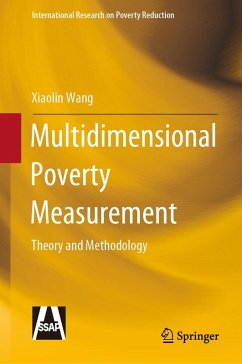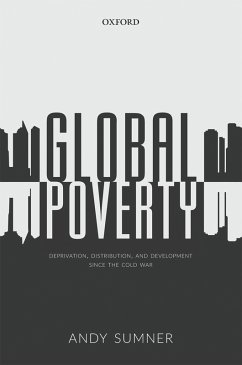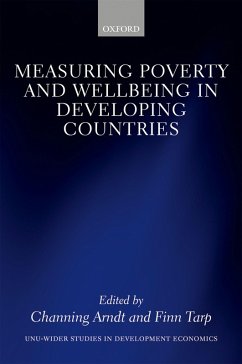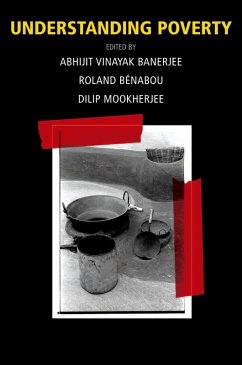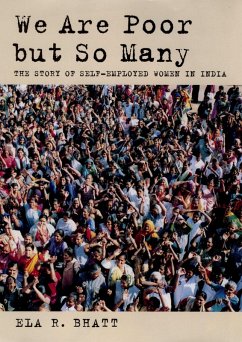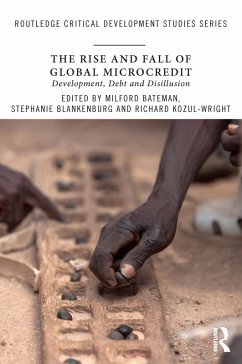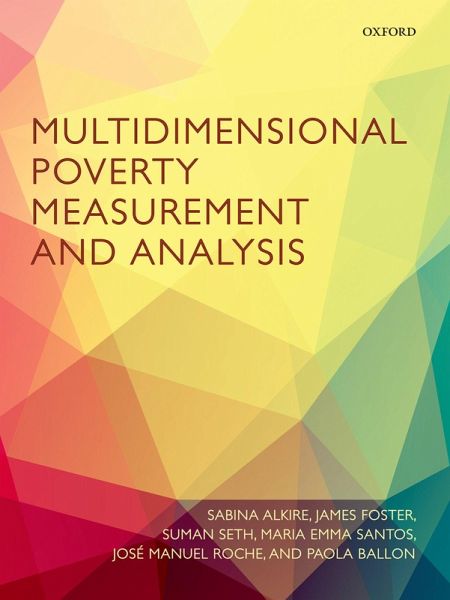
Multidimensional Poverty Measurement and Analysis (eBook, PDF)

PAYBACK Punkte
18 °P sammeln!
Multidimensional poverty measurement and analysis is evolving rapidly. Notably, it has informed the publication of the Multidimensional Poverty Index (MPI) estimates in the Human Development Reports of the United Nations Development Programme since 2010, and the release of national poverty measures in Mexico, Colombia, Bhutan, the Philippines and Chile. The academic response has been similarly swift, with related articles published in both theoretical and applied journals. The high and insistent demand for in-depth and precise accounts of multidimensional poverty measurement motivates this boo...
Multidimensional poverty measurement and analysis is evolving rapidly. Notably, it has informed the publication of the Multidimensional Poverty Index (MPI) estimates in the Human Development Reports of the United Nations Development Programme since 2010, and the release of national poverty measures in Mexico, Colombia, Bhutan, the Philippines and Chile. The academic response has been similarly swift, with related articles published in both theoretical and applied journals. The high and insistent demand for in-depth and precise accounts of multidimensional poverty measurement motivates this book, which is aimed at graduate students in quantitative social sciences, researchers of poverty measurement, and technical staff in governments and international agencies who create multidimensional poverty measures. The book is organized into four elements. The first introduces the framework for multidimensional measurement and provides a lucid overview of a range of multidimensional techniques and the problems each can address. The second part gives a synthetic introduction of 'counting' approaches to multidimensional poverty measurement and provides an in-depth account of the counting multidimensional poverty measurement methodology developed by Alkire and Foster, which is a straightforward extension of the well-known Foster-Greer-Thorbecke poverty measures that had a significant and lasting impact on income poverty measurement. The final two parts deal with the pre-estimation issues such as normative choices and distinctive empirical techniques used in measure design, and the post-estimation issues such as robustness tests, statistical inferences, comparisons over time, and assessments of inequality among the poor.
Dieser Download kann aus rechtlichen Gründen nur mit Rechnungsadresse in A, B, BG, CY, CZ, D, DK, EW, E, FIN, F, GR, HR, H, IRL, I, LT, L, LR, M, NL, PL, P, R, S, SLO, SK ausgeliefert werden.




